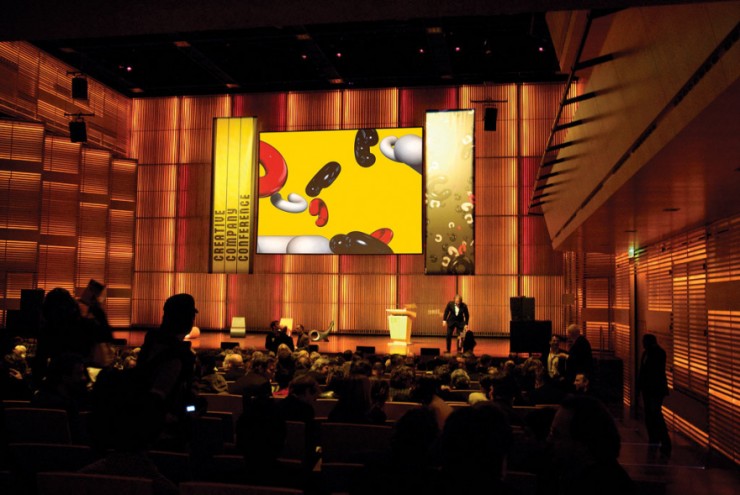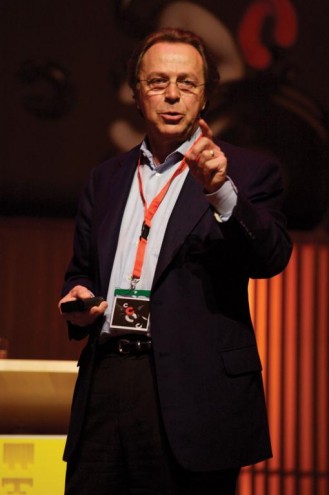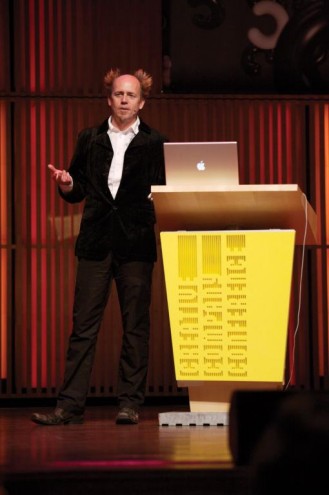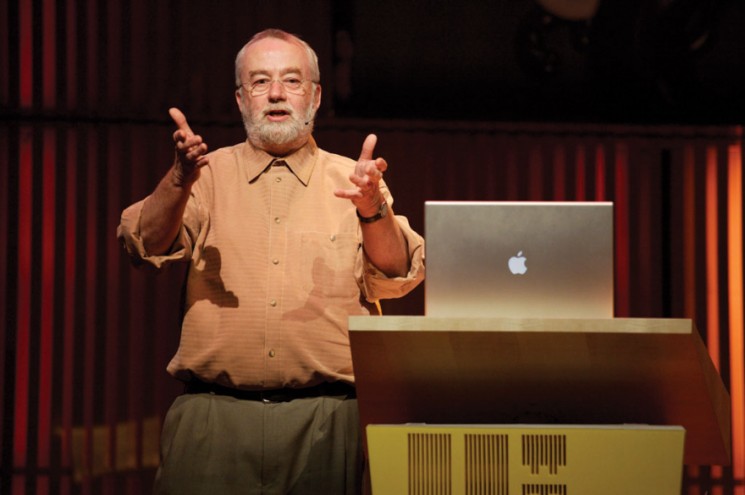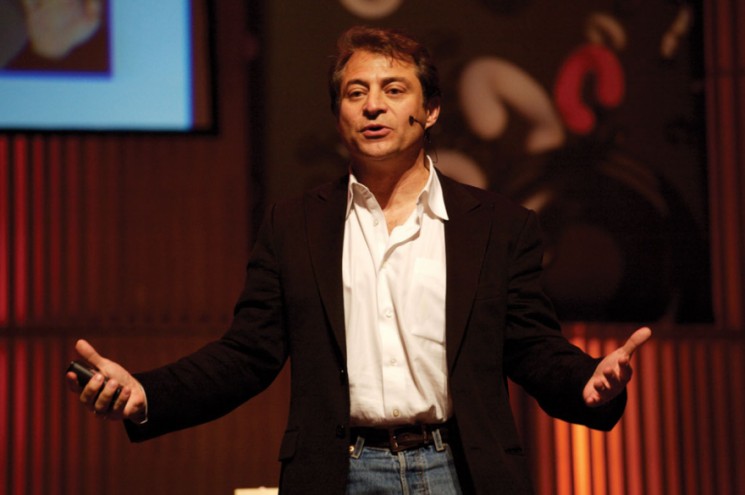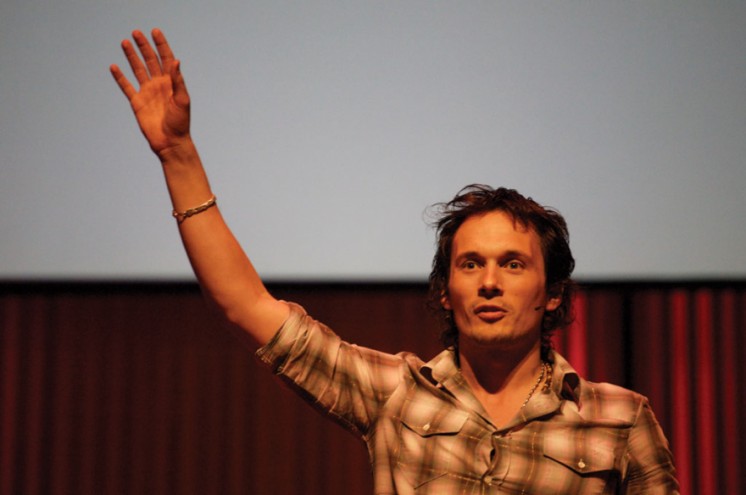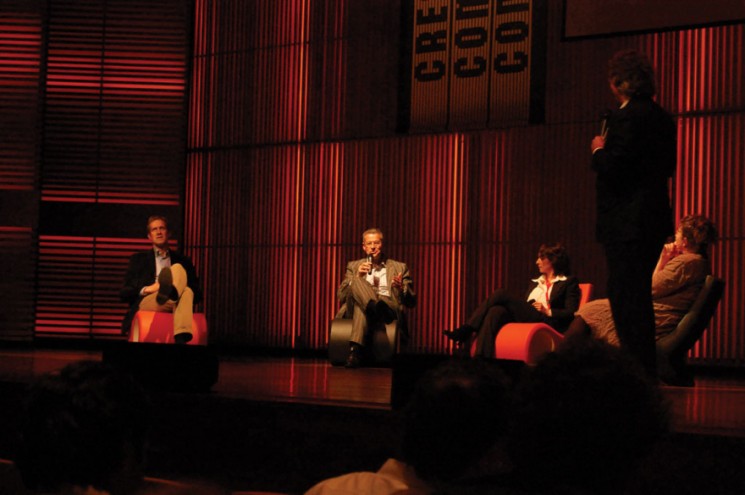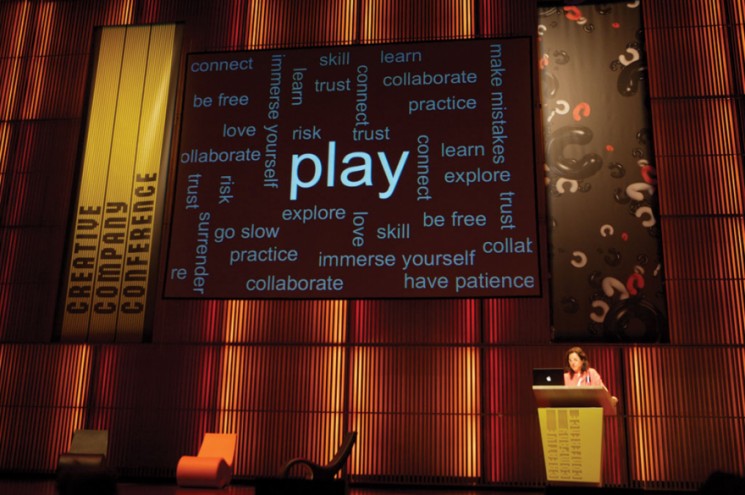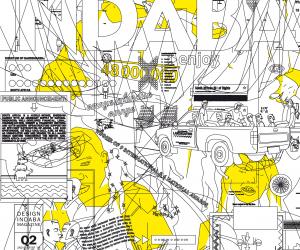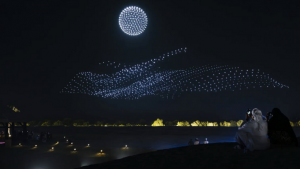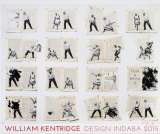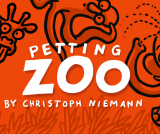First Published in
For the past three years I have been attending the Design Indaba and, being the biggest and arguably the best of design conferences, I did not think it necessary to attend another. That is, until I took a look at the theme and speaker list for the Creative Company Conference in Amsterdam (and of course it helps if you're invited to attend). What impressed me the most was the attitude of celebrating the creative process and creative thinking in business. The conference opened a dialogue between delegates and some of the most creative innovators and entrepreneurs in the world.
A collaboration between BisPublishers in Holland and Design Indaba's founders, Interactive Africa, the conference was enviably opened by the mayor of Amsterdam, Job Cohen. A distinguished role call followed, led by the first speaker, John Howkins, who coined the term "creative economy" in 2000. Chairman of ITR Consultants and John Howkins & Co, Howkins discussed "managing the switch" - taking a dream and making it a reality - and also expounded on the value of "thinking" as a proper job.
Vice president of global marketing for Coca-Cola, Marc Mathieu then detailed how the company revived the brand, at the same time "making the world a better place... a billion times a day!" (There are 1-billion Cokes sold every day.) Next up was Carlos Miele, fashion designer and creative artist from Brazil, who shared his view of the importance of giving back to the environment and disadvantaged communities. He spoke at length about being open to life experiences and using that as a source of inspiration and innovation.
"If you expect a lot out of your employees, you've got to put a lot in!" exclaimed Disney's chief creative officer and senior vice president, Ivy Ross, who spoke about creating and nurturing the correct environments for innovation and creative thinking. She has pioneered the inclusion of creative experiences in the daily work schedule - such as visits to art museums and galleries or the use of sound chairs that use beats and tones, to stimulate creativity; she's even brought clowns in to get laughter flowing. The outcome? A overall general increase in creativity.
Robert Brozin, the founder of Nando's South Africa, also got to share his success story. Passion for food and smart advertising were key determinants of success. As such, Brozin moved from large glossy agencies to smaller creative groups and also sought better application of his advertising budget. In turn, Arkadi Kuhlman, creator of the largest Internet bank with a value of $77 billion, attributes his success to doing the very opposite to his competitors.
By the time lunch came around, my head was spinning with an overload of information and inspiration. Nonetheless, after an hour of chatting to Miele, Brozin and others, I was ready for more - as was everyone else. There was a tangible buzz and an urgent excitement throughout the day.
The first speaker after lunch was vice president of creativity at Starbucks, Stanley Hainsworth, who stressed the importance of creative guidelines. Normally creative designers cringe at the mere mention of corporate identity guidelines, but not if it is made up of a checklist of only five points: handcrafted, artistic, sophisticated, human and enduring. Richard Reed, founder of Innocent Drinks, the largest smoothie brand in the UK, in turn told us that it's important in any company to get the big things right, but that it is concentrating on the little details, which sets you apart from your competitors.
The next speaker was Bill Moggridge, who had just recently spoken at Design Indaba 2008. Well-known to many as the designer of the very first laptop, he is also the co-founder of IDEO and a pioneer of interaction design. Moggridge focused on the importance of interaction design as a discipline that integrates human factors into the creative process.
Peter Diamandis, founder of the X-Prize, concluded the day. Diamandis's organisation awards millions of dollars to breakthroughs in the energy, environment, genomics, nanotechnology, science and social arenas. In 2004, he awarded $10-million to Paul Allen and Burt Rutan for the world's first non-government piloted spacecraft. The next competition open to the world is the $30-million prize for anyone who can land a spacecraft on the moon.
The Creative Company Conference was hugely successful and has set the standard for what's to come. Events like these leave one inspired and motivated to be creative. If you can afford the ticket to Amsterdam, put it on your calendar for next year.

